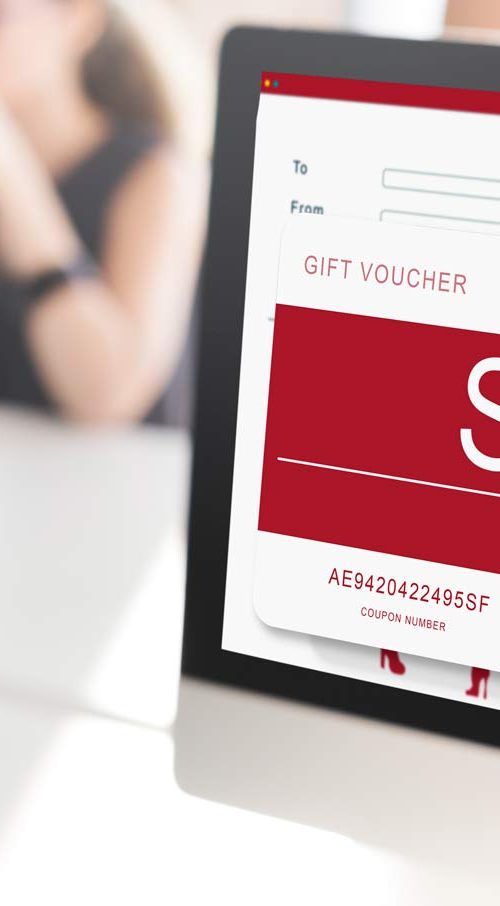Maximize Your Financial Potential: A Comprehensive Guide for Business Owners on Debt Consolidation Loans
For business owners, managing a diverse array of debts—including credit card balances, overdraft accounts, and traditional loans—can be a significant challenge. As these debts accumulate, the financial pressure intensifies, demanding more resources to effectively manage multiple payment obligations. Debt consolidation loans for self-employed individuals provide a valuable opportunity for business owners to streamline their financial responsibilities by combining all debts into a single loan agreement. This consolidation not only simplifies the repayment process to one monthly payment, one interest rate, and one lender but also reduces administrative burdens, enhancing overall financial clarity and stability.
According to statistics from 2021, UK businesses could be facing a staggering £97 billion to £107 billion in unsustainable debt, as reported by TheCityUK in the Sunday Times. This alarming figure underscores the urgent need for business owners to implement effective debt management strategies that ensure they can navigate their financial obligations with greater efficiency and sustainability.
Understanding How Business Debt Consolidation Loans Work to Benefit Your Company
A business debt consolidation loan acts as a strategic financial tool that enables companies to secure new funding specifically dedicated to settling their existing debts. This process effectively merges multiple debts into a single, more manageable loan, simplifying the repayment landscape for entrepreneurs. By choosing to consolidate their debts, businesses can relieve the pressure of juggling various payments, thereby allowing them to concentrate more on operational growth and the overall management of their enterprise.
When evaluating debt consolidation loans, it is essential to seek out lenders offering competitive interest rates that are lower than the total combined rates of your current debts. This ensures that the consolidation process is genuinely advantageous, positively influencing your financial health and long-term sustainability.
Overcoming Repayment Challenges Associated with Government-Backed Loans
A significant portion of the estimated £38 billion in business debt results from government-backed COVID-19 loan programs. Over 910,000 businesses have utilized these financial schemes; however, many are facing substantial obstacles regarding the repayment of these loans. This situation not only presents serious challenges for the businesses involved but also adversely impacts broader economic recovery efforts across the nation.
In light of these challenges, there is growing pressure on British banks to expedite their preparation for comprehensive debt recovery strategies while enhancing staff training to effectively manage debt disputes. On an individual basis, business owners must carefully assess their options for effectively managing multiple debts to maintain financial stability and operational viability.
Assessing the Practicality of Business Debt Consolidation for Your Organization
In summary, consolidating business debt is not only feasible but often advisable.
Operating a business in today’s unpredictable economic landscape presents numerous challenges. For small to medium-sized enterprises, maintaining a healthy cash flow is essential, particularly for those engaged in business-to-business transactions or sectors subject to seasonal fluctuations.
Unforeseen expenses can arise—whether related to acquiring new equipment or facing sudden price hikes from suppliers. Without adequate cash reserves, businesses may find themselves quickly accumulating debt, further complicating their financial situation.
During times of financial stress, many businesses consider loans as a primary solution. However, during economic downturns, the tendency to apply for multiple loans can lead to a precarious situation known as the debt spiral.
The debt spiral occurs when businesses struggle to meet repayments on several financial obligations, resulting in mounting interest and escalating debt levels. The challenge of managing daily operations is already substantial, and when compounded by the pressure of multiple debts, it can become overwhelmingly stressful. This is precisely where business debt consolidation loans can offer significant relief and support.
In-Depth Overview of Effective Business Debt Consolidation Strategies
When unexpected economic challenges arise, UK businesses may find themselves rapidly accruing substantial debt. In these instances, a business debt consolidation loan can serve as a viable solution.
There are numerous formal and informal pathways available to assist businesses in effectively addressing their debt-related challenges.
The initial step typically involves seeking guidance from a reputable financial advisor who can provide valuable insights into tailored debt consolidation strategies that align with specific business needs.
One of the options available is a Company Voluntary Arrangement (CVA), specifically tailored for limited companies facing debt challenges. This process mirrors an Individual Voluntary Arrangement (IVA) used in personal insolvency scenarios.
Through a CVA, businesses can negotiate terms with creditors, potentially resulting in a portion of their debts being written off, thereby enabling extended repayment periods. This arrangement grants businesses essential breathing space to recover and restore their financial standing.
While accepting a reduced payoff is not obligatory, it is worth considering; creditors may prefer this approach to ensure they receive more over time rather than risk the possibility of liquidation.
An insolvency practitioner oversees the CVA, facilitating discussions between the business and its creditors while allowing existing management to continue operating the company.
Diverse Strategies for Business Debt Consolidation Success
Business debt consolidation offers the opportunity to combine various forms of business loans, overdrafts, and creditor obligations into a single, cohesive loan agreement. This approach streamlines cash flow by consolidating payments into one manageable monthly installment, ultimately reducing administrative time and costs while significantly enhancing the efficiency of the repayment process.
Simplifying Business Credit Card Debt through Consolidation
For businesses struggling with multiple credit cards, a practical solution exists to consolidate these debts into a more organized and manageable structure. A business debt consolidation loan represents a unique opportunity to secure a more favorable lending option, potentially lowering monthly payments and freeing up critical capital for operational needs.
Enhancing Cash Flow with Business Cash Advance Debt Consolidation
In specific scenarios, businesses may require immediate access to cash to maintain healthy operations. Often, capital is tied up in existing loans and overdrafts, making it challenging to access liquid assets. A business debt consolidation loan can streamline this process by merging various debts into a single payment with a lower monthly obligation, thus improving liquidity for essential business functions.
Addressing Bad Credit Challenges in Business Debt Consolidation
As businesses grow, they may accumulate numerous loans and financing options, leading to complex repayment structures. This complexity can be exacerbated by a poor credit score, making it difficult to secure additional financing. However, a business debt consolidation loan offers a pathway to simplify debts into one manageable loan with a single monthly payment, enhancing overall financial clarity.
Small Business Debt Consolidation Loans: An Essential Financial Resource
Small businesses are crucial to the economy but often struggle to remain viable amid minor fluctuations in demand or foot traffic. For these enterprises, managing multiple loans without dedicated financial personnel can be particularly daunting. A small business debt consolidation loan aggregates all outstanding debts into a single loan, simplifying payment management and alleviating financial stress.
Weighing the Pros and Cons of Business Debt Consolidation
Business consolidation loans present a distinct set of advantages and disadvantages; however, many challenges can be effectively addressed and managed.
Advantages of Business Debt Consolidation Loans
Achieving Strategic Savings Through Debt Refinancing
By selecting a refinancing loan with a larger principal and extended repayment term, your business can acquire a greater overall amount while maintaining similar monthly payments. If you qualify for a lower-interest refinancing loan compared to your existing debts, you will incur less interest over time, ultimately saving your business money. Paying off a mix of current loans or replacing an older loan with a new, lower-interest option can also facilitate improved cash flow each month.
Ensuring Continuous Operations Amid Financial Challenges
Successful debt consolidation can enhance cash flow and support ongoing business operations while ensuring profitability. By consolidating debts with a single lender, businesses can redirect funds that would typically be allocated to high-interest payments, allowing for more strategic investments in operations and growth initiatives.
Simplifying Payment Management for Busy Entrepreneurs
For business owners focusing on their operations, handling multiple repayments can be overwhelming. A consolidation loan shifts the focus to a single monthly payment, significantly reducing administrative burdens and allowing owners to concentrate fully on running their businesses effectively and efficiently.
Enhancing Cash Flow through Efficient Debt Management
With business debt consolidation loans, you are likely to spend less on interest each month, enabling you to retain more cash for essential purchases and investments that drive growth and sustainability.
Boosting Your Credit Score through Responsible Financial Management
By effectively managing your financial obligations through a single monthly loan payment, you can establish a stronger repayment history. This positive track record enhances your appeal to lenders and suppliers, increasing your chances of securing future financing and credit opportunities.
Potential Drawbacks of Business Debt Consolidation
Long-Term Interest Rate Considerations
When consolidating business debt, payments are determined based on the initial amount owed, which includes both principal and interest. Even if you secure a lower interest rate through a business debt consolidation loan, you may end up paying more in interest over the duration of the loan due to extended repayment periods, emphasizing the importance of careful financial planning.
Acknowledging the Temporary Nature of Debt Solutions
While consolidating debt can alleviate monthly payment burdens, it is crucial to address the underlying financial issues within your business. Implementing a long-term strategy may be necessary to achieve lasting financial stability and sustainability.
Exploring the Interrelationship Between Personal and Business Debt: Unlocking Potential Solutions
If you are a freelancer or self-employed individual operating without a limited company, your debts are classified as personal, allowing for consolidation. However, if your business operates as a limited company, those debts are regarded as legally distinct from your personal debts. Consulting with a financial advisor can help evaluate your situation and identify viable options for effective debt management.
Consider the scenario of a plumber functioning as a sole trader who undertakes a significant project that spans over a month, with payment delayed until 60 days after completion.
This project may hinder the plumber from accepting additional jobs, resulting in cash flow challenges. During this time, necessary supplies for the job are purchased on credit, and unexpected vehicle repairs arise, further straining finances.
Consequently, the plumber finds themselves managing debts from both the garage and the builder’s merchant. This scenario illustrates the potential intertwining of personal and business debts, underscoring the importance of self-employed debt consolidation loans to prevent financial distress.
Understanding the Functionality of Self-Employed Debt Consolidation Loans
For individuals facing a mix of personal and business debts, a self-employed debt consolidation loan can provide significant relief. This type of loan allows you to pay off creditors and streamline repayments into a single monthly obligation at a lower interest rate than the sum of your previous debts. This approach can help restore financial balance, enabling you to focus on income-generating activities rather than administrative tasks.
When applying for debt consolidation loans, ensure that your monthly payment is lower than what you currently pay to your existing creditors; otherwise, the consolidation may not yield the intended benefits.
Proven Strategies for Achieving Successful Business Debt Consolidation
To effectively consolidate business debt, whether it arises from credit cards, overdrafts, or loans, businesses should pursue a dedicated business consolidation loan. This loan consolidates all outstanding debts into one manageable loan, simplifying repayment into a single monthly payment with one interest rate and one lender, ultimately enhancing financial clarity and reducing stress.
Leading Business Debt Consolidation Companies to Consider
Today’s business debt consolidation companies differ significantly from traditional corporate banks. While some banks offer consolidation loans, there are also specialized companies that cater to various business types, including micro-businesses and SMEs. These lenders often prioritize ethical lending practices and customize loans to suit specific business circumstances.
Key Considerations for Evaluating Business Debt Consolidation Loan Rates
When selecting a business debt consolidation loan, it is vital to compare different options, as interest rates can vary widely. Rates may range from just over 5% to as high as 36%. By exploring various lenders, you can find a loan that best aligns with your financial needs; even if some options come with higher rates, they might still provide the essential financial support you require promptly.
Assessing the Impact of Business Debt Consolidation on Your Organization
In scenarios where your business debt stems from isolated incidents, a CVA may represent the most effective pathway to achieving debt relief.
Company directors can prevent liquidation and bankruptcy by adhering to the terms established within the business debt consolidation arrangement.
Through this strategy, a business can aim for debt freedom within five years. During the CVA period, interest can be paused, and additional charges may be halted, facilitating repayment. In some cases, as much as 75% of a business’s unsecured debt can be eliminated through a CVA.
A Creditor Voluntary Liquidation (CVL) represents an alternative approach to business debt consolidation that many financial counseling agencies may recommend. In this process, parties legally entitled to the company’s assets can identify and distribute these assets during the liquidation procedure.
During the liquidation process, the company is dissolved, and the CVL represents a resolution agreed upon by the shareholders. This stage is critical; at this juncture, the company may be too far gone to consider a debt consolidation loan, indicating insolvency and an inability to repay debts in full.
The economic recession has unfortunately pushed numerous UK businesses into CVL scenarios, a situation that is undesirable for any shareholder or director. A liquidator is appointed to oversee the CVL business debt consolidation process.
The liquidator will convene a meeting with creditors to scrutinize the insolvency claims presented by the directors, with creditors formally appointing the liquidator. The liquidator’s responsibilities in the business debt consolidation context include converting assets into cash, investigating the conduct of company directors, assessing the company’s debts, and facilitating payments to creditors.
Discover More: Trending Topics Among Visitors
 Buy Now Pay Later Schemes Currently Under Scrutiny
Buy Now Pay Later Schemes Currently Under Scrutiny
Buy Now Pay Later Schemes Currently Under Scrutiny
References:
<blockquote class="wp



